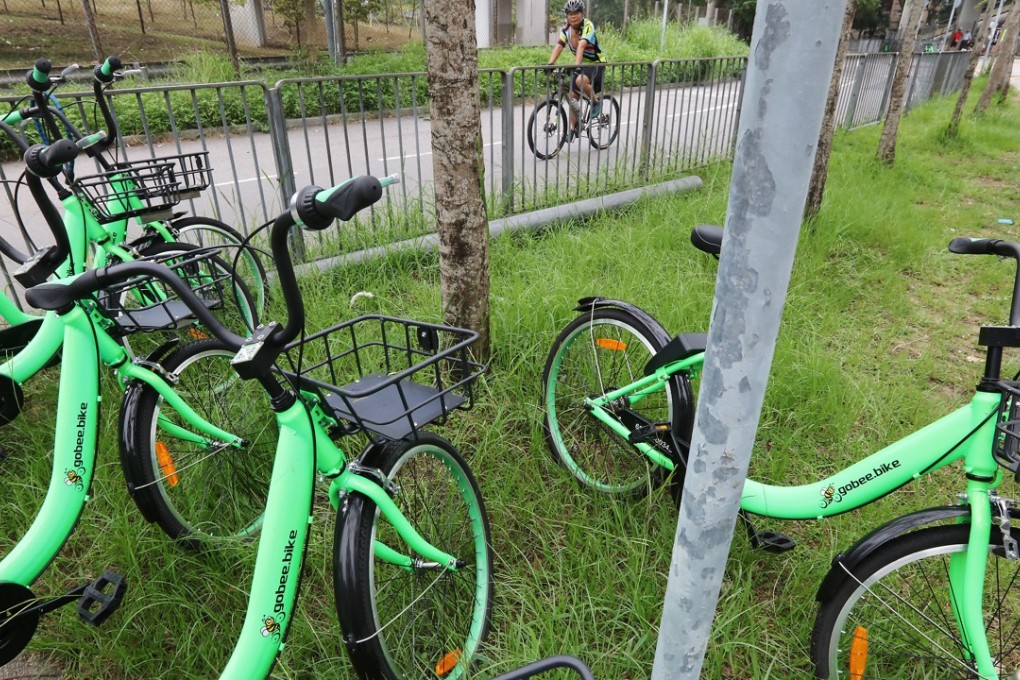Exclusive | Messy parking sparks call to regulate Hong Kong’s first bike-share service
Complaints received over bicycles occupying car park spaces, prompting questions about whether public facilities should be used by such businesses

Lawmakers and district councillors have urged the government to tighten rules after the recent debut of the city’s first bike-sharing service prompted a string of complaints over the haphazard parking of bicycles.
But according to Raphael Cohen, founder of Gobee.bike, there is no such need, based on his assessment of the fledgling bike-sharing business.
Sha Tin district councillor Billy Chan Shiu-yeung said he had received complaints about Cohen’s company, and calls for more stringent bicycle parking rules.
Chan said there had been reports of many bikes left randomly in public car park spaces. Some of these bicycles had occupied the spaces for extensive periods, seemingly abandoned, he said.
“Hong Kong is not ready for bike-sharing services,” he said, citing the city’s lack of regulations and supporting infrastructure.